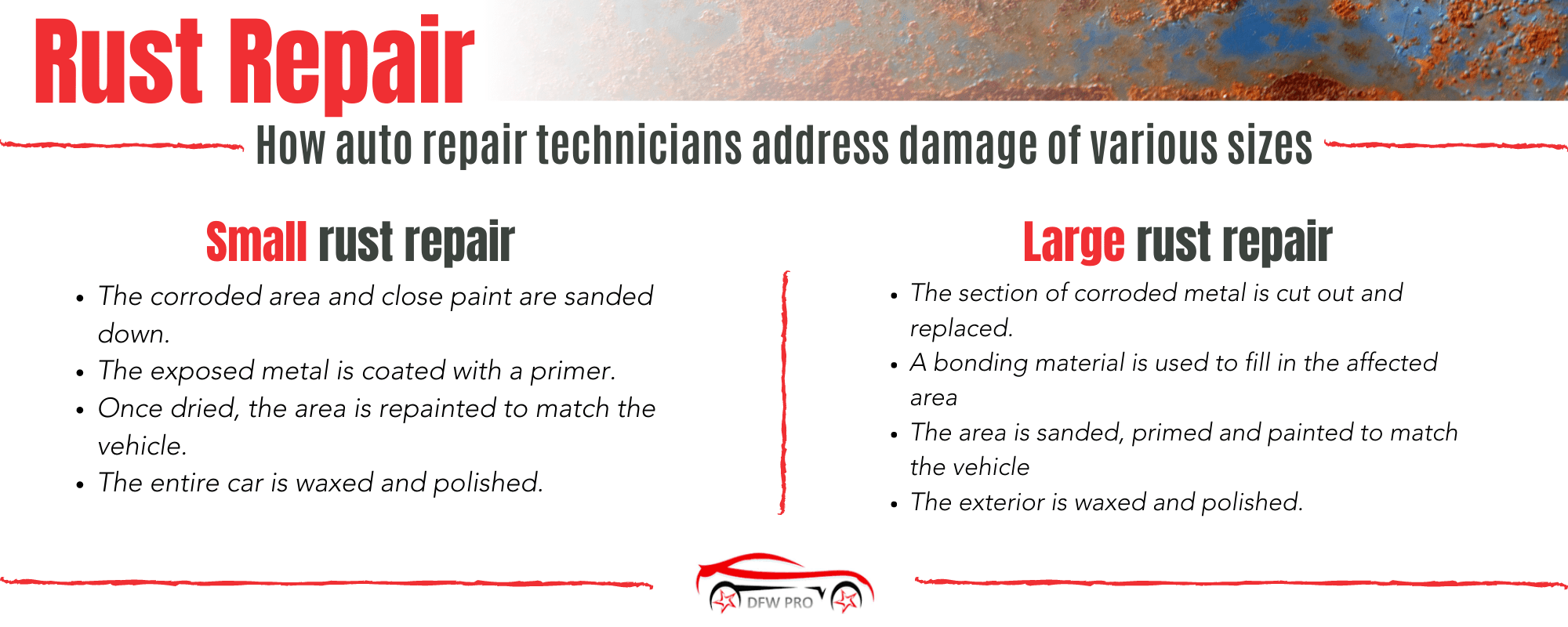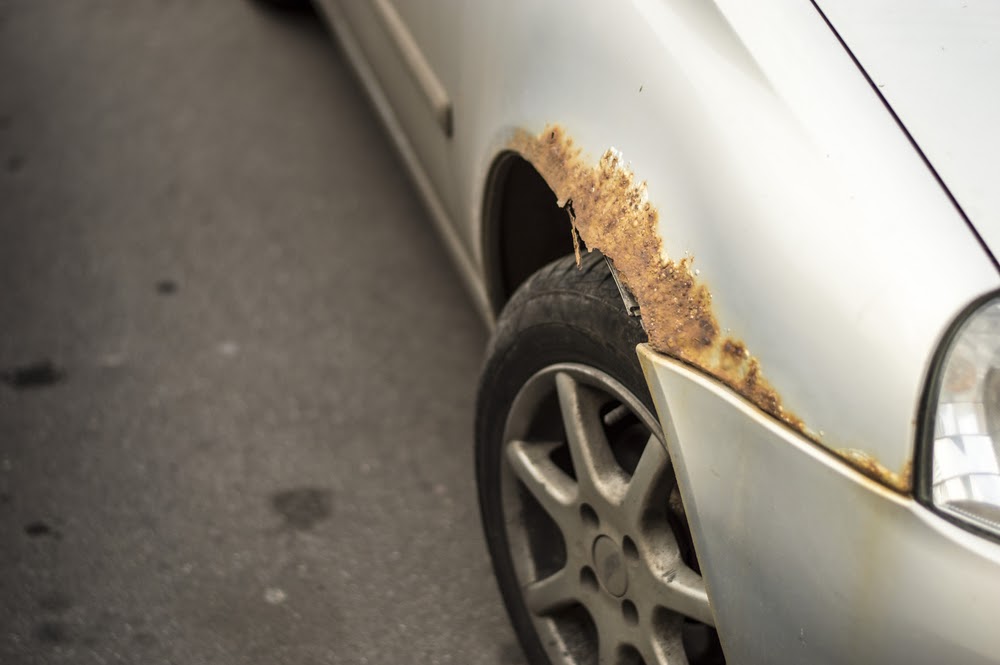Let’s say you’re looking to upgrade from a car you’ve had for several years and still runs great. You may be looking to market it yourself or perhaps gift it to a family member, confident in your “mint condition” selling point — until you notice small rust spots after a snowy winter. You wonder, does the rust spell doom for the integrity of the vehicle, or is it something that can be chalked up to a mere blemish?
Here’s the truth: any noticeable rust on your vehicle can indicate more severe problems beneath the surface. Today, we’ll explore the importance of getting rusted areas promptly repaired — but first, let’s go over what causes this to happen in the first place.
Why Do Cars Rust?
It’s relatively common for older vehicles to develop rust spots, especially when exposed to saltwater or de-icers. Over time, chemicals, dirt, and salt on the road can cause the car’s paint’s top layers to weaken. Moreover, untended scratches and dents from even minor fender benders or door dings could promote rust formation — even on newer vehicles.
When it comes to rust, you may have heard the term “oxidation” tossed around — that’s when bare metal is exposed to water, iron, and air and starts corroding due to a chemical reaction. If saltwater starts accelerating the oxidation process, you may observe a rust spot around your wheel well or bottom of your door. Once it spreads, it’s not just unattractive — it can begin eating away at your car’s structural components and body panels.
Rust Repair: What the Size Implies
Small rust repairs are ideal for when damage is superficial, and the corrosion hasn’t yet penetrated through to the metal. As such, a reputable body shop might recommend a small rust patch job when it’s the result of a deep paint scratch or minor dent. If the rust has penetrated a more significant or deeper area, more extensive bodywork is necessary, as the weakened integrity of supporting structures may not be able to withstand a collision.

How Do I Protect My Car from Rust?
Aside from the body, the car’s undercarriage is also vulnerable to rust, including the exhaust system, floorboards, and chassis. That said, here are some rust-prevention tips:
- Periodically take your car to a touchless car wash that won’t skimp on the undercarriage, especially when your car’s been exposed to road salt.
- Hand-wax your vehicle every six months.
- Have your vehicle professionally detailed once a year — the high-quality products will better protect the paint’s finish.
- Get any deep scratches or noticeable dents serviced in a timely manner.
For more information about our auto or collision repair services, or to fill out a free estimate request, contact DFW Pro Bright Star today!
